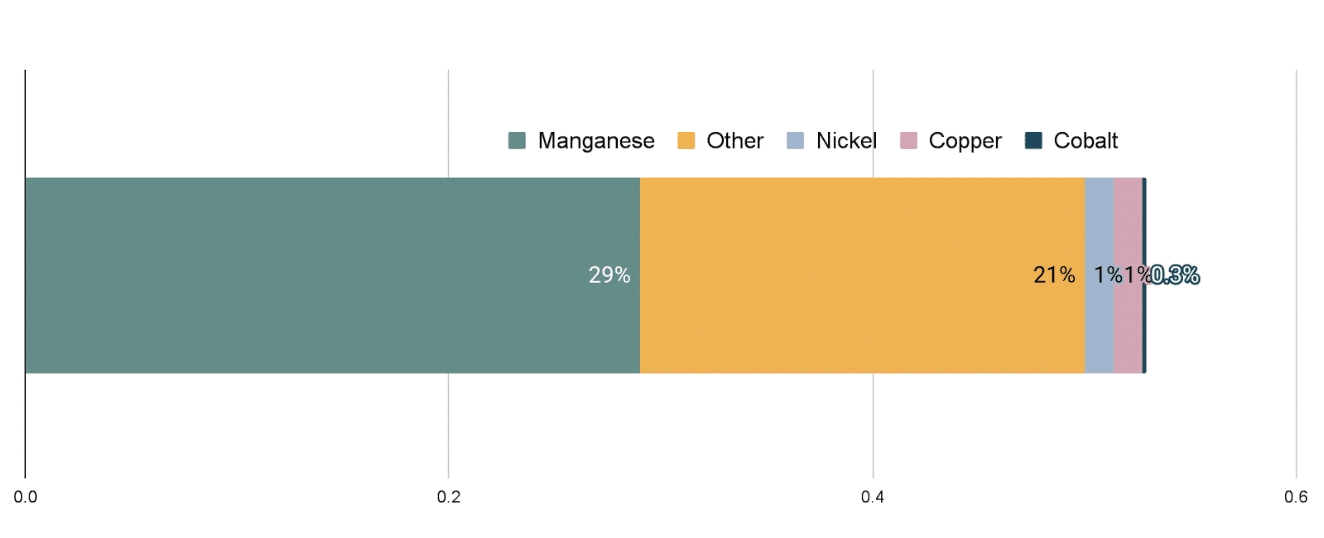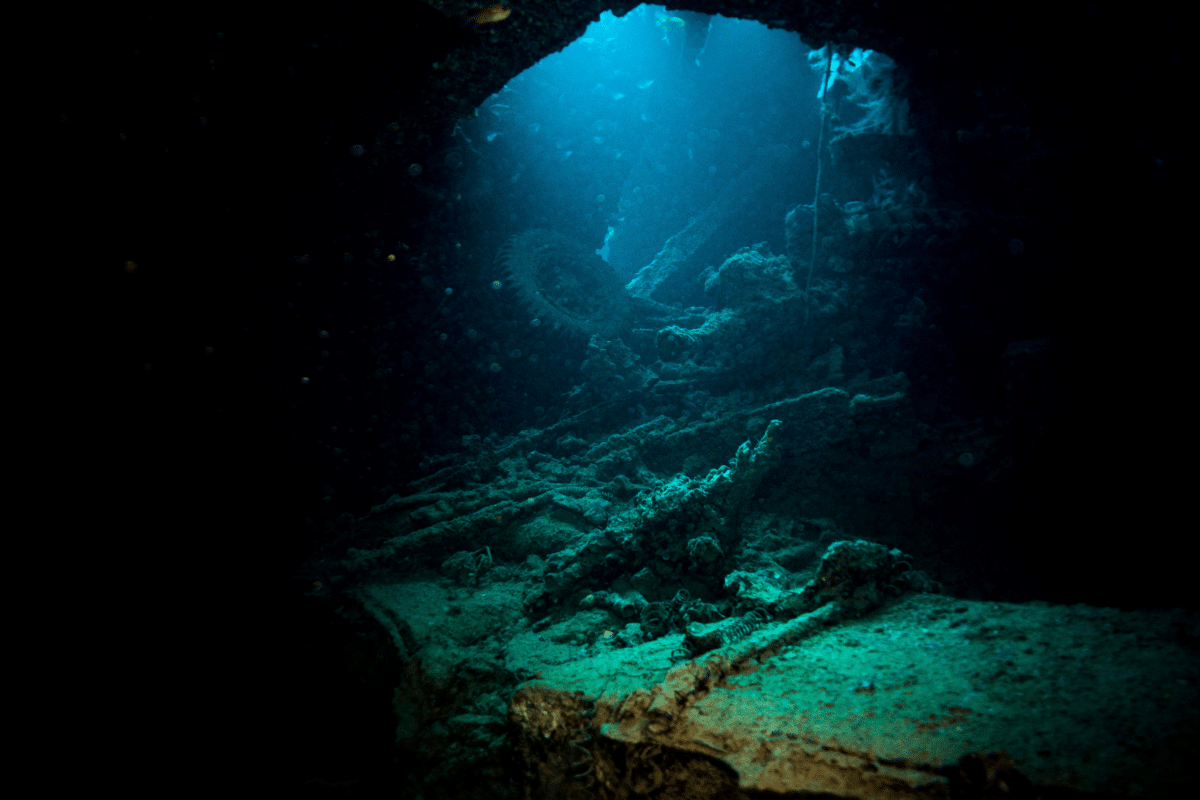The Trump Administration is initiating the process of selling leases for deep-sea mining. While deep-sea mining is expected to result in discoveries of critical minerals, some of which are crucial for the green energy supply chain, environmentalists have warned of its repercussions for the environment. Here’s everything we know about the Trump administration’s push for deep-sea mining and why it’s such a polarizing topic.
Last week, the US Department of Interior announced that “it is initiating the process to evaluate a potential mineral lease sale in the waters offshore American Samoa.” The agency added, “This marks the first such action by Interior in over 30 years and could pave the way for future extraction of critical minerals from the U.S. Outer Continental Shelf.”
US Begins Process of Granting Leases for Deep-Sea Mining
In April, a California-based startup, Impossible Metals (previously known as Impossible Mining), submitted a formal request for the leases. The Bureau of Ocean Energy Management said it will “begin a multi-step evaluation process grounded in science, public engagement, and environmental stewardship.”
In his remarks, Secretary of the Interior Doug Burgum said, “Critical minerals are fundamental to strengthening our nation’s resilience and safeguarding our national interests.” He added, “By providing opportunities to responsibly access deep-sea mineral resources, we are supporting both American economic growth and national security.”
🚨 BREAKING: Trump just launched a MASSIVE power play against China's mineral dominance. New executive order targeting TRILLIONS of dollars in DEEP SEA minerals.
This is HUGE.
Let me break it down for you… 🧵 pic.twitter.com/tWo6J1N4ft
— Rod D. Martin (@RodDMartin) April 28, 2025
To be sure, the decision hasn’t come out of the blue, and last month, President Trump signed an executive order that called upon agencies to “expedite the process” for permits for companies to mine U.S. and international waters.
Oceans Contain Crucial Metals
Along with crucial metals like nickel, cobalt, copper, and titanium, deep-sea mining is expected to unleash deposits of rare earth elements. Currently, China has a near monopoly on rare minerals, and the country produces the bulk of these, which are used in many industries like smartphones, electric vehicles, and LED lights.

Notably, Trump’s executive order calling for fast-tracking deep-sea mining came amid the escalating trade war with China. Both countries imposed massive tariffs on each other in April, though tariffs on both sides have been cut significantly. However, China weaponized its rare earth supply chain, curbing exports last month, and it has not rescinded these restrictions at the time of writing.
It wasn’t the first time that the world’s second-largest economy tried weaponizing its lead in the critical industry. For example, it halted shipments of rare earths to Japan for almost 2 months in 2010 over a territorial dispute with its maritime neighbor. In late 2023, it imposed a ban on rare earth extraction and separation technologies in an apparent bid to thwart efforts to build a global supply chain of these minerals.
Environmental Concerns Over Deep Sea Mining
Meanwhile, the US Department of Interior has begun the process of granting licenses for deep-sea mining, and, among others, it would seek the opinion of various stakeholders, including the indigenous Island community, ocean users, as well as the general public.
On its part, the Department of Interior’s release stresses that “BOEM (Bureau of Ocean Energy Management) will also ensure full compliance with all applicable laws, including the National Environmental Policy Act, the Endangered Species Act, and the National Historic Preservation Act.”
However, not all are convinced, especially given the fact that most of the ocean hasn’t yet been mapped and we know very little about the seabed. However, what we know is that the polymetallic nodules that contain mineral deposits also support much if not most of the life on the ocean floor in the targeted area. While some animals, such as worms and corals, grow on these nodules, the sediment underneath them also supports many other creatures including various species of fish.
“Scientists agree that deep-sea mining is a deeply dangerous endeavor for our ocean and all of us who depend on it,” said Jeff Watters, vice-president for external affairs at the Ocean Conservancy.
He added, “The harm caused by deep-sea mining isn’t restricted to the ocean floor: it will impact the entire water column, top to bottom, and everyone and everything relying on it.” For example, the mining could harm creatures low on the food pyramid, effectively starving the animals that eat them.
Gina Guillén-Grillo, a delegate of the International Seabed Authority (ISA) that has been working on regulations for deep-sea mining, has quite a pertinent warning on the risks. “Species that we don’t even know will be eliminated, because we don’t even know what’s down there,” said Guillén-Grillo.
The popular YouTube channel HowTown made a short documentary featuring multiple deep sea experts that details the potential benefits and disadvantages of deep sea mining if you want to learn more.
Companies Say Benefits Offset the Harms
Proponents of deep-sea mining, which unsurprisingly includes companies looking to mine the ocean, hold the opposite view. They see the benefits of the clean energy transition from mining these rare earth minerals as offsetting any potential harms to the deep-sea ecosystem from their deep-sea mining activities. They also point out the harm from mining on the land.
“For some reason, people think it’s OK to go digging up rainforests to get the metals underneath them, yet we’re debating whether we should be going to pick up these rocks that sit on the abyssal plain? Something has got screwed up here,” said Gerad Barron, the CEO of deep-sea mining startup The Metals Company, in an interview with NPR, while referring to nickel being mined in rainforests in Indonesia.
Are Companies Ready For Deep-Sea Mining?
There are also concerns over whether companies are ready for deep-sea mining, as no company is doing so on a commercial scale. Vancouver-based The Metals Company tested its system in 2022, where vehicles about the size of a school bus crawl along the seabed to scoop up nodules, which then pass through a vertical tube to a ship on the surface.
However, there are apprehensions over whether companies would be able to mine efficiently from the ocean beds, as all of the entities working on deep-sea mining are startup companies. It may turn out to be more costly than regular mining. Experts have pointed out that rare earth metals aren’t as rare as the name suggests.
Concerns over China owning most of the rare earth mineral supply chain, and the Trump administration’s push for building a resilient mineral supply of critical minerals, could push the pivot towards deep-sea mining forward. However, the debate over the pros and cons of deep-sea mining is already gaining traction as environmentalists highlight the negative impact of mining on the ocean ecosystem while deep-sea mining companies emphasize its benefits.
